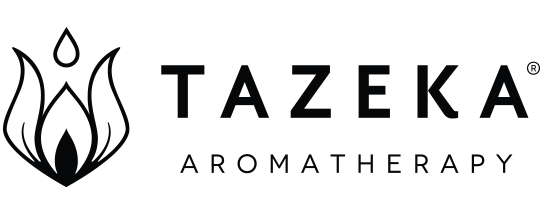
Last week, we talked about stress headaches—what they are and what triggers them.
This week’s topic is how to handle headaches. The goal is to soothe the pain or prevent it altogether, and ultimately find long-term solutions to stop headaches from disrupting your daily life.
If you rarely experience headaches, or only get them every now and then, taking an over-the-counter (OTC) medication might not be a bad option. Long-term, regular use of such drugs can become a problem, though. Side effects can set in, and medicine like this typically masks symptoms instead of addressing their cause.
Aromatherapy blends for headaches
One good option is using aromatherapy blends for headaches. Aromatherapy acts on a more holistic level than OTC drugs, so using it regularly can bring you into alignment with health while soothing your symptoms.
Peppermint oil is a popular ingredient in aromatherapy blends that address head pain; it has a very soothing, cooling effect said to reduce inflammation. Lavender—a powerhouse aromatherapy oil for many kinds of pain—is another good choice.
To use aromatherapy blends for head pain, apply them to your scalp over the area of tension, and to the back of your neck. Be careful not to get them too close to your eyes. The fumes can be strong.
The good thing about using essential oils for head pain, as opposed to OTC medications, is that properly-diluted aromatherapy blends are generally safe for long-term use.
Reduce stress to reduce headaches
If headaches are a chronic issue in your life, some lifestyle changes may reduce their frequency.
-
Check your posture. Poor posture can cause headaches because your muscles are held in unhealthy positions for too long. It can reduce circulation, and strain muscles, tendons and ligaments.
-
Make sure any chairs you use for long periods of time are ergonomically designed to support posture. The same goes for your mattress and your shoes (yes, your shoes!)
-
Eat a balanced diet. Eliminate foods that may cause reactions, subtle levels of inflammation, or allergies.
-
Drink more water. You probably don’t need eight glasses a day, but you probably need more than you get.
-
Get relaxation massages.
-
Plan your day before you begin it—either the night before, or first thing in the morning. This helps you prioritize, so you don’t feel like you should be accomplishing more than you actually get done.
-
Practice meditation and deep breathing.

Comments on this post ( 0 )